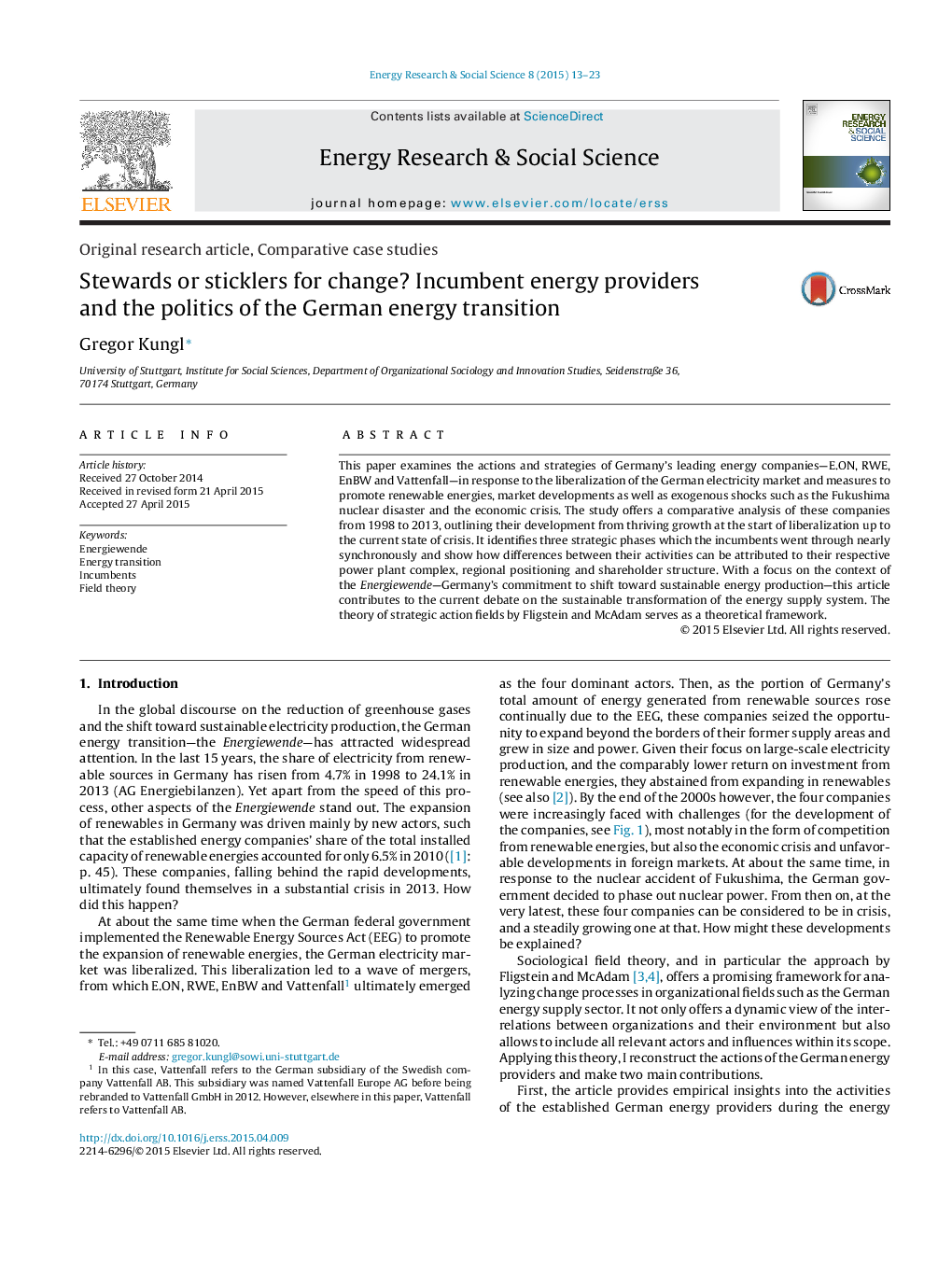| Article ID | Journal | Published Year | Pages | File Type |
|---|---|---|---|---|
| 6558758 | Energy Research & Social Science | 2015 | 11 Pages |
Abstract
This paper examines the actions and strategies of Germany's leading energy companies-E.ON, RWE, EnBW and Vattenfall-in response to the liberalization of the German electricity market and measures to promote renewable energies, market developments as well as exogenous shocks such as the Fukushima nuclear disaster and the economic crisis. The study offers a comparative analysis of these companies from 1998 to 2013, outlining their development from thriving growth at the start of liberalization up to the current state of crisis. It identifies three strategic phases which the incumbents went through nearly synchronously and show how differences between their activities can be attributed to their respective power plant complex, regional positioning and shareholder structure. With a focus on the context of the Energiewende-Germany's commitment to shift toward sustainable energy production-this article contributes to the current debate on the sustainable transformation of the energy supply system. The theory of strategic action fields by Fligstein and McAdam serves as a theoretical framework.
Related Topics
Physical Sciences and Engineering
Energy
Energy (General)
Authors
Gregor Kungl,
